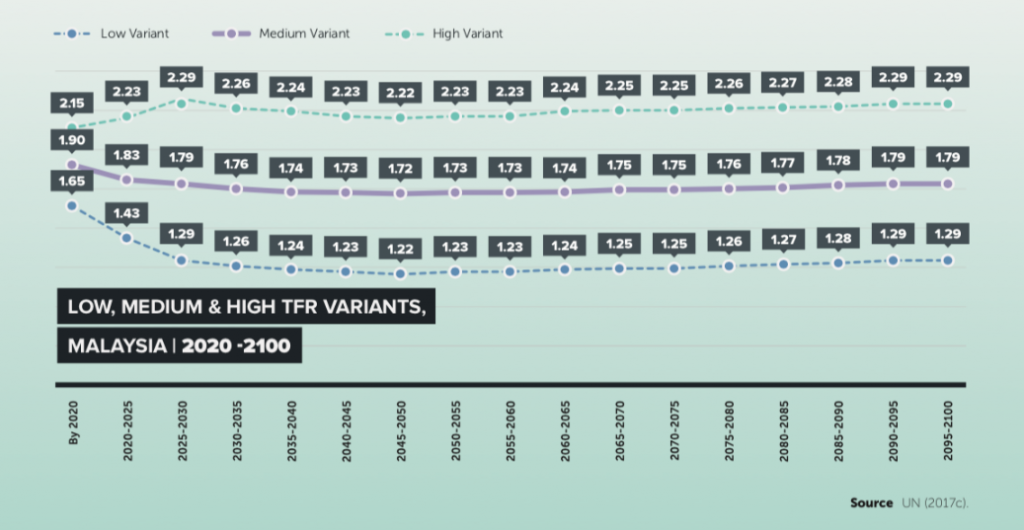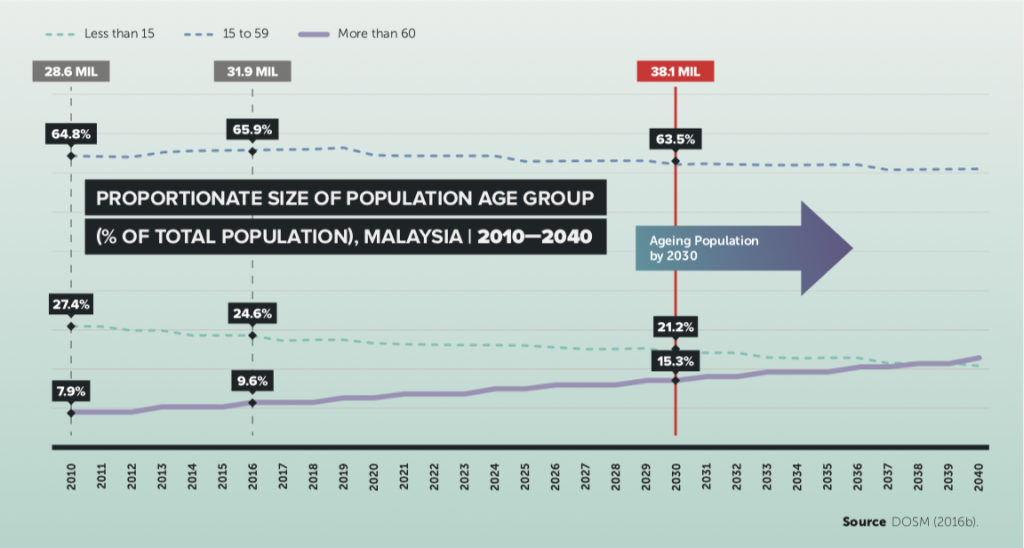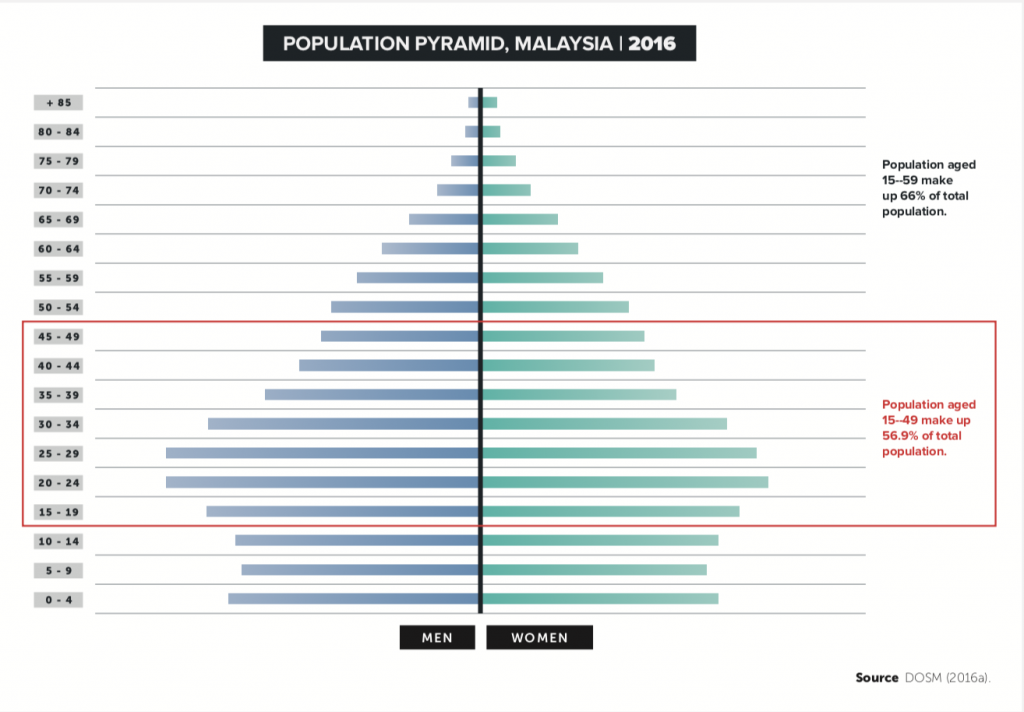Malaysia Population Research Hub

The population of the country is expected to increase from 32.4 million in 2017 (DOSM, 2016b) to 44.5 million by 2050. Despite the increase in the number of population, the annual population growth rate is expected to decline to 0.7% in 2050. This situation is much influenced by the decline in the fertility rate of the population in the past 36 years, it has decreased by 2 times from 4.0 children in 1980 to 1.9 children per woman aged 15 to 49 years in 2016 (DOSM, 2017a). Compared to other ASEAN countries, the country’s fertility rate is currently at the bottom 3 after Singapore (1.2) and Thailand (1.5)(UN, 2017a).

Based on previous trends, the fertility rate of the population is likely to remain between 1.9 and 2.0 children per woman aged 15 to 49 years by 2020, and then fall below 1.9 in the next decade to reach 1.7 children by 2050 (UN, 2017c). In 2017, the population aged 60 years and above is around 10% and it will increase to 15% or reach the “aged country” status in 2030 (DOSM, 2016b). However, if fertility rates decline faster than expected; it is likely that the country will achieve “aged country” status before 2030.


Proportionate Size of Population Age Group, 2010-2040
Country Is Expected to Reach “Aged Country” Status by 2030
The country is expected to reach “aged country” status by 2030, which is only 12 years left. For comparison, South Korea, Thailand, Singapore and Japan each has between 13 to 18 years to achieve “aged country” status where the countries are at the same level as Malaysia.

Time Taken for Countries to Reach “Aged Country” Status
Intervention To Stop The Fertility Decline Should Be Implemented
If the fertility rate of the population is improved and maintained at 2.0 in the future, the population is projected to continue to grow positively to reach over 50 million people in 2100 (UN, 2017b) as a result of the momentum of population aged 15 to 49 years representing nearly 60 % of the total population in the country (DOSM, 2016a). Intervention to stop the decline in fertility rates will directly slow down the ageing process of the country.

Population Pyramid, Malaysia 2016

Opinion Survey in a Review of the National Population Policy
Based on NPFDB’s survey, more than 70% agreed that the government should help couples in this country to get married and start a family life earlier. Financial aid is also expected to improve fertility rates especially among couples who want to get their first or second child.